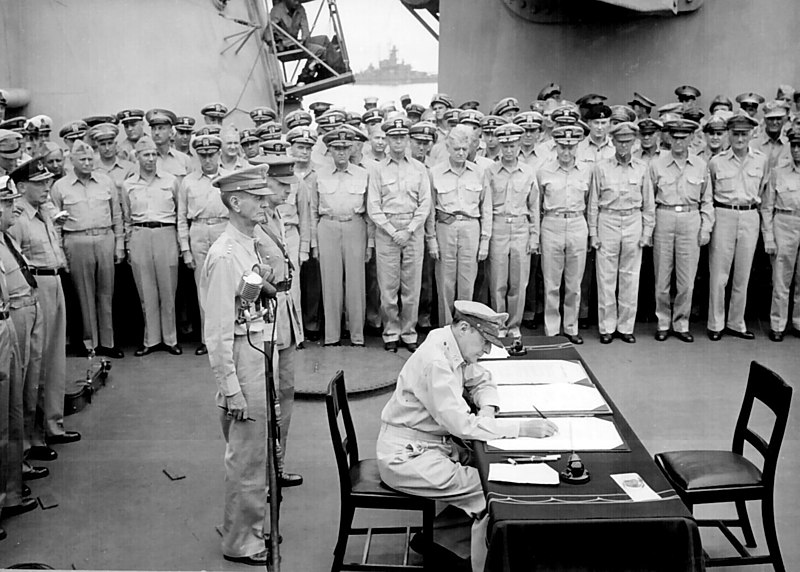And the end of all our exploring
Will be to arrive where we started
And know the place for the first time.
Vaya con dios Sherwin! (Second from left.)
Yesterday, I sort of knew it would be necessary to invest some time to watch a blockbuster flick. With two people in tow, we saw Battleship, a Hasbro property that made film debut for the first time since creation in 1931 (originally published by the Milton Bradley Company). Perhaps the most annoying part about the film was the intense use of the technology of another Hasbro property, Transformers. The accusation goes that Hasbro exploited the current 'Transformers void' by introducing another property that had nothing to do with robots. It was after all a battle of ships, not human ships versus alien machines.
The movie's concept would not sit well with me throughout. And so did the choice of actors. But I won't dwell on those any further. Instead, let's talk about what we enjoyed about it.
(Spoiler alert.)
USS Missouri. As superior modern ships eventually replaced mighty battleships, the Missouri in its analog technology became the only ship that had the ability to finish the fight. The advanced ships had superior capabilities but were rendered useless. Guidance systems were in disarray, they were completely blind, and, well, they were utterly destroyed. The mechanical design of the Missouri would mean it would go to war with pure brawn. Put it another way, its technology was unadulterated strength. Historically, the Missouri is the last battleship of its class to be constructed. Before it was finally decommissioned, it went to war in many places, the last at the Persian Gulf in 1991. The most significant event in its history though would be a document that will be signed aboard the Missouri in 1945--the Japanese Instrument of Surrender, a two-page document that would end World War II.
Honoring veterans. The heartwarming part of this episode is that the Missouri couldn't be operated given its 'inferior' technology. This is where veterans came in. Even if this was simply a sci-fi rendition, seeing honorable warriors in their golden years take the helm of the ship was a great sight. I have personally not seen any film that honored their heroism. And I keep going back to the fact that Battleship didn't need to talk about it. But it did. It is a proud moment to any midshipman. And to anyone for that matter who understands how wars are won.
Wounded warriors. Battleship talked about so many things that are hard to ignore. This is another portion where, apart from showing how improvements in prosthetics enabled continuity with broken soldiers, it tackled the psychological elements of disability, depression and sense of purpose.
Old foes. The setting was Pearl Harbor, Hawaii, the place where it all began. Initially, two officers belonging to the US and Japan were at odds with each other. To cut the long story short (and the usual cliche in movies), fighting together against a superior race while forgetting the past, was another of those subjects Battleship talked about. It is not greatly represented but I think it did it satisfactory.
Battleship gameplay. My favorite part. When I was a kid, I owned a Battleship board game. I cherished having one as I played it with anyone who was "man enough." What took me by complete surprise (when I've just about dismissed that this had nothing to do with the original game) is the intelligent use of the old gameplay in making you (if you've played the original Battleship) feel that they have not forgotten the game board after all. It was no less than orgasmic to see how the old gameplay unfolds as each side predicts the next move through buoys and water displacement. Brilliant.
At the end, this flick resonates well because it managed to respect two technologies, the obsolete and the modern. In the event of an alien attack--okay fine, let's be real--in the event of a catastrophic disaster, the obsolete things are the one that would continue to run, i.e. analog radio, old Morse code. Through this, we know that advancements in tech never truly replace their predecessors. More like enhancements if I may put it. And the enduring lesson that the most basic technology is the one that wins wars is always there because the basic, by default is designed to outwit the advanced (i.e. Game of the Generals).
Games can get enormously complicated as it can be, but like Battleship, it starts and ends with the same essence it began with.
We shall not cease from exploration
And the end of all our exploring
Will be to arrive where we started
And know the place for the first time.
-T. S. Eliot




No comments:
Post a Comment